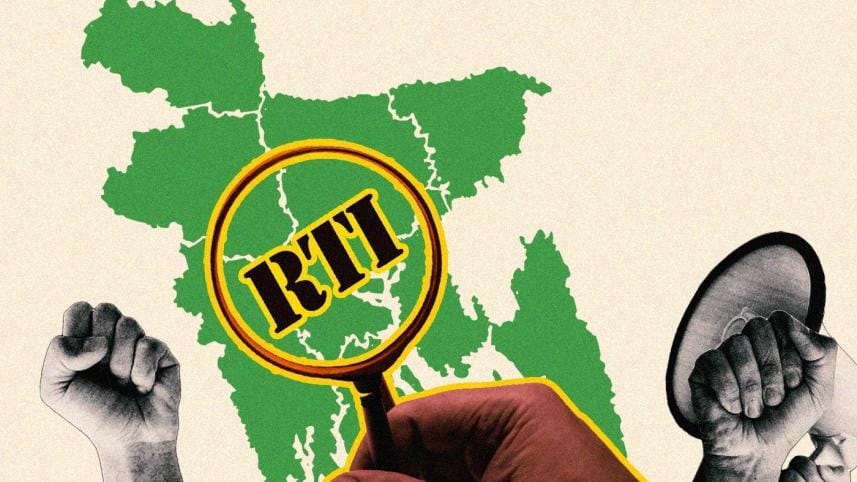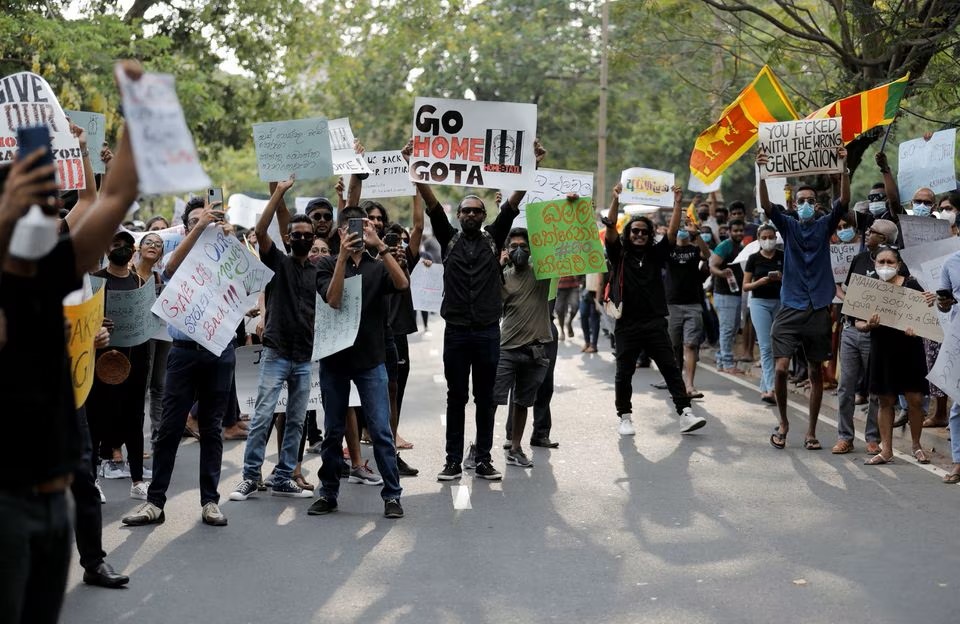Citizens must use RTI Act to its full potential

Bangladesh's adoption of the Right to Information (RTI) Act in 2009 was a transformative move, empowering its citizens to access information available to most public authorities on matters related to their work. It was a significant step towards making public authorities more transparent and accountable to the people. The Information Commission (IC) was constituted in 2009 to ensure the law's effective implementation. The commission is mandated to publish an annual report, giving a detailed account of its work and the performance of the demand side (citizens seeking information) and the supply side (public authorities who supply them).
The recent release of the 2023 Annual Report by the Information Commission has sparked a significant surge in interest, with national dailies, civil society and NGOs all actively discussing its findings. This heightened attention is a promising indication, reflecting a growing recognition of the law's potential benefits. However, it also underscores the crucial role of each stakeholder in fully harnessing this potential. Each of us, as stakeholders, plays a vital part in this journey towards transparency and accountability, and our active engagement is key to its success.
The IC's role in promoting the RTI law is of utmost importance. Its primary duty is to advocate for the widespread adoption and understanding of the law. Additionally, the IC is entrusted with the task of adjudicating disputes between the demand and supply sides. This crucial function is fulfilled through regular hearings to resolve complaint cases. Recently, the commission has been focusing on how government officials handle citizens' RTI requests, a key aspect of the RTI process that ensures the law's effective implementation.
The IC's annual report this year unveils a promising trend. In the past, citizens viewed the use of RTI as an individual right to be exercised as and when necessary. However, a significant shift has been observed in recent years. Citizens are now embracing it as a collective duty to promote good governance. This positive development signifies that the true spirit and objective of the RTI law are gradually being realised. However, its use is still limited to what we may call focusing on low-hanging fruits only. Unless we move up to the upper level, the true benefits of the RTI law will not be fully achieved.
RTI experts have identified three different levels of the use of the law. The first level seeks information on public services and personal/neighbourhood needs. The second level seeks information to establish accountability of public officials. The third level seeks information to promote transparency at the national level and bring systemic change in governance. Over the past 14 years since the law came into force in Bangladesh, little progress has been made beyond the first level, though a shift to the second level is visible.
Until we reach the third level, we shall not realise the true benefit of the law. To achieve that end, there is a clear need for more educated and socially aware citizens to use the law. They can focus on more critical issues of governance affecting society and people as a whole. These would include allocation of budgets, information on public funding, spending on government projects, etc. In neighbouring India, for example, activists filed RTI requests that led to the recent unearthing of a public scandal relating to electoral bonds. It is not logical to expect ordinary citizens to understand the intricacies of such critical issues for the nation.
Bangladesh thus needs to create an environment where civil society leaders, activists, and ordinary citizens feel encouraged to use the law. This will be possible when public authorities are prepared to deal with all kinds of RTI applications, including matters they may consider sensitive. That preparedness is still not there.
We appreciate the recent position that the Information Commission took on the role of government officials in applying the law and its decisions to make them respect its provisions. However, some factors remain bothersome. A close look at statistics from recent years on the rejection of complaints by the IC shows that in 2023, among 686 complaints filed with it, the IC accepted 324 for a hearing (47.23 percent). In 2022, from 791 complaints filed, it accepted 360 for a hearing (45.51 percent). In 2021, 463 complaints were filed and 234 accepted for a hearing (50.53 percent). Overall, around 50 percent of complaints are accepted for a hearing.
That means approximately 50 percent of the complaints received are rejected by the IC and disposed of without a hearing, often simply with some advice on corrective measures. The grounds for rejection are often simple errors or omissions in fulfilling the processes of the law, such as not attaching a copy of the original application with the complaint or not using the correct form, or mistakes in the name, designation of authorities, for not writing the question more clearly and precisely, etc.
Such a matter-of-fact disposal of complaints, often from ordinary citizens, for simple mistakes or errors in the process, will likely discourage them and others from using the law further and thus deprive the government of benefiting from their willingness to use it to promote its objectives. We urge the IC to be more accommodating of the shortcomings in their applications. An Indian court ruled that using a simple postcard without a form is good enough to submit an RTI request. This could be a more empathetic approach towards citizens trying to navigate the complexities of the law.
The statistics provided in the annual reports show that the number of RTI applications has remained stagnant over the years. When the RTI Act came into force, nearly 20,000 applications were made annually in the first few years, but then the numbers dwindled progressively to an average of around 8,000 requests annually. We need to understand why. Is it still because of a lack of awareness about the law, fear of public authorities and their misbehaviour, or a fear of consequences for seeking sensitive information? In the latter regard, we are encouraged by the statements of the new information minister.
It is also essential to know what other mechanisms the IC uses to ensure that more and more people use the law, other than holding various awareness programmes up to the upazila level. If their efforts do not work, what will happen if NGOs, too, fail to promote the law because of a lack of funds? It should be a matter of concern.
As NGO workers involved in promoting the law, we know that many RTI applications submitted annually to different public offices are made through the efforts of many NGOs in the field. We see its benefits as many applicants have emerged as activists. They have developed a clear understanding of the law and realised that keeping an eye on the affairs of the government through seeking information is more a duty than a right. It is mainly through the efforts of many RTI activists that the process of approaching government officials to pursue redress has been demystified. However, it is imperative to scale this intervention to more groups across Bangladesh to foster a people-friendly culture in all public offices. The RTI law aims to direct efforts beyond individual grievances and interests, seeking mainstream issues of transparency and the rule of law to benefit society.
More than the IC and the government, civil society and citizen groups must take the lead to ensure that RTI requests focus on the decision-making processes and procedures of governance rather than on the information, per se. To illustrate, at the local level, a person may initially want to see a list of those receiving safety net benefits to verify their exclusion (personal benefits/services). However, in the next stage, they may ask about the policy mandate of the concerned institution and gradually proceed to ask whether it is responsive to the public good or interest (i.e. accountability). Further, they may want to see the files in which such decisions were made, the names of the persons responsible, and the criteria by which they were selected (i.e. transparency).
In a nutshell, here are some points to ponder upon:
1. More than 14 years have passed since the RTI Act was adopted in Bangladesh, but the number of RTI applicants has remained stagnant at a comparatively very low level. As it is primarily a people's law, citizens' groups must collectively undertake responsibility to promote its use.
2. Public authorities still resist providing information on sensitive matters, sometimes even innocuous ones. The IC needs to pay particular attention to the matter.
3. While the IC appears to have recognised the problem caused by recalcitrant public officials, there is a scope for it to be more proactive. A clear and consistent display of its resolve that those who disobey the law will be dealt with firmly will help. We see an improvement over the years in the number of Designated Officials (DOs) being sanctioned for non-fulfilment of their duties, but they are still few and far between. Between 2011 and 2023, the IC heard 3,233 complaint cases and penalised only 81 DOs to pay compensation or fine or face department actions, which appears relatively low.
We call upon all relevant stakeholders, including the Information Commission, information ministry and civil society to work together to create an enabling atmosphere for people to use the RTI law to achieve its objectives meaningfully. We must understand that the use of RTI law is not merely to focus on the work of the government, but rather to operationalise good governance and inclusive development in the country through citizen participation.
Dr Shamsul Bari and Ruhi Naz are chairman and assistant director (RTI), respectively, of Research Initiatives, Bangladesh (RIB). They can be reached at rib@citech-bd.com.
Views expressed in this article are the authors' own.
Follow The Daily Star Opinion on Facebook for the latest opinions, commentaries and analyses by experts and professionals. To contribute your article or letter to The Daily Star Opinion, see our guidelines for submission.




 For all latest news, follow The Daily Star's Google News channel.
For all latest news, follow The Daily Star's Google News channel. 



Comments